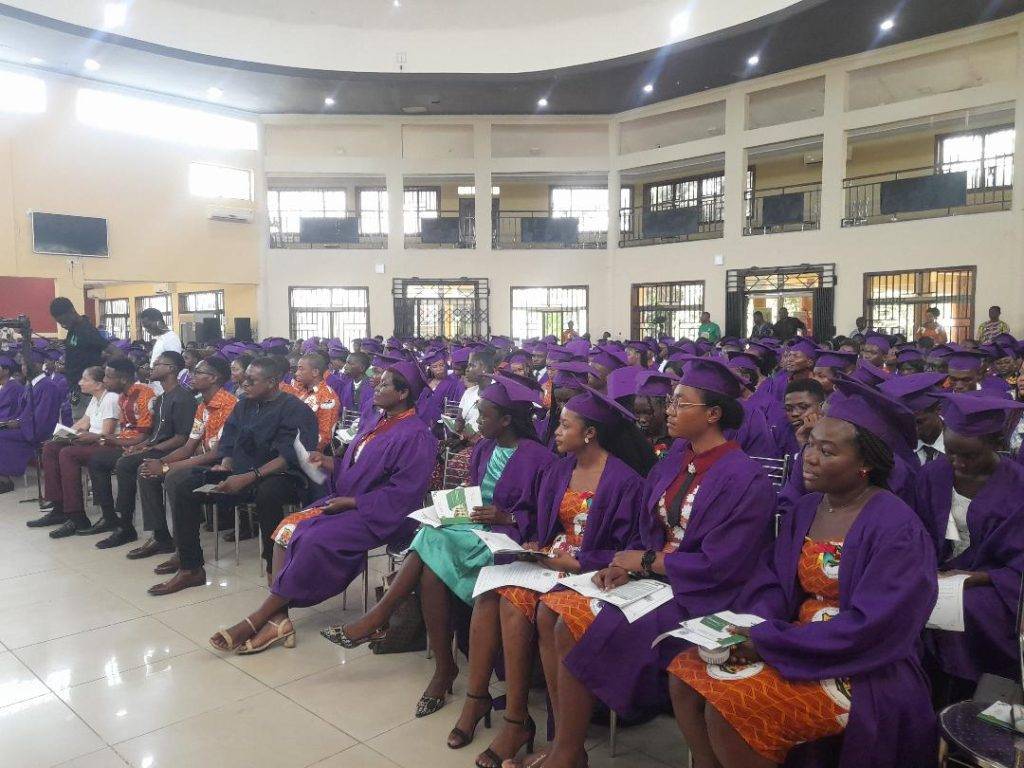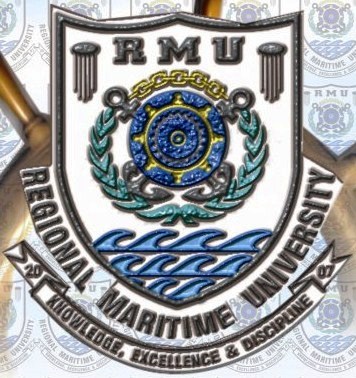


Effect from the 2025/2026 academic year, the Regional Maritime University (RMU) will introduce a four-year mandatory cadetship for all students pursing sea-going programmes as well as other interested students.
Students will be in the regiment during level 100 and 200 and for levels 300 and 400, because of inadequate accommodation, students may be given the option of either staying in the University’s hostel or a private hostel.
Dr. Jethro W. Brooks, Acting Vice-Chancellor, RMU, was speaking at the 19th Congregation of the University in Accra.
The graduation ceremony saw 372 students graduating with Master’s, bachelor’s degrees and Diplomas in various fields. Of this number, 66 received master’s degrees, 231 received bachelor’s degrees and 52 diplomas.
Seventeen per cent of the undergraduates graduated with First Class honours, 49 per cent with Second Class Upper Division, and 27 per cent with Second Class Lower Division degrees.
Seventeen per cent and 44 per cent of the diploma candidates obtained Distinction and Second-Class Upper Division respectively.
Students and staff who served creditably in the academic year under review were also recognised and awarded with citation and cash prizes.
The Vice-Chancellor said, however, they would be regulated to maintain and solidify the values instilled in them.
“To this end, all level 300, and 400 sea-going students will be uniformed, undertake regular physical training and will be subjected to all the rules and regulations governing Cadetship,” he added.
He noted that their B.Sc. Electrical/Electronic Engineering also go to sea after successful completion of their programme of study.
Therefore, the Academic Council had decided that with effect from the 2025/2026 academic year applicants admitted into these programmes at both Bachelors and Diploma level would also undergo the 4-year mandatory cadetship.
However, Special programmes will be developed to accommodate the weekend students, most of whom, we understand, are working.
He said to promote enhanced environments that support teaching, learning and research, the University had embarked on a number of projects aimed at achieving this objective.
Dr Brook Jnr. said during the year under review the following projects were embarked upon, including a fully refurbished 40-seater capacity Global Maritime Distress and Safety System Laboratory with the latest software and a two-desktop Bridge Simulators; one of whom was purchased with assistance from Ghana Maritime Authority
Others are an Ultra-Modern Video Conference Room funded by the Republic of Sierra Leone, 450 pieces of the much-needed tool (Parallel Rule, Dividers and Chart Compass) for the Department of Nautical Studies and a two-storey 50 bed capacity hostel funded by the Republic of Liberia.
The rest are functional ship engines for practical purposes for the Department of Marine Engineering and training boat donated by the Mitsui Ocean Development & Engineering Company (MODEC) Limited.
The Vice-Chancellor said the University had been recently monitoring the government’s “Skills for Export” policy initiative, aimed at equipping the youth with employable skills both for the local and International Labour markets.
He said the University was in discussions with the Ministry Transport and other relevant institutions and in the coming months a major policy statement would be issued to this effect.
He said following the successful International Blue Economy Conference held in the Republic of The Gambia and the lessons, the University in consultation with its stakeholders have developed new programmes in Blue Economy and other related Maritime programmes.
The new programmes are M.Phil., M.Sc., & M.A. in Blue Economy, M.Sc. Maritime Law, M.Sc. Nautical Science, M.Sc. Marine Engineering, PhD. in Maritime Transport and Logistics.
He said the introduction of these programmes would not only expand the capacity of the university’s programmes to admit more students, but would equip the students, especially the seafarers, with the relevant know-how to work ashore when they decide not to sail any longer.
Alhaji Fanday Turay, the Chancellor of RMU, said the University’s continuing ability to produce top quality graduates had given it a world-deserved global recognition for its excellence in maritime education and training.
He said high-level maritime education and training would become even more important in the future as the world becomes more complex, more interdependent and more interconnected.
“And as safety and environmental awareness continue to play a key part in all efforts to ensure the smooth and efficient operation of shipping in the service of international trade and the world economy,” he said.
He said essential as this may be, there were significant variations in the capacity of individual States to play their part satisfactorily in these efforts.
The Chancellor said the university was strategically positioned to focus on human resource development of its Member States and beyond.
“In delivering on this mission, we place due emphasis on training and institutional capacity building,” he added.
Alhaji Turay said through education, research and capacity building, the University had served the global maritime community and was of enormous value to the sub-region in its quest to promote safe, secure and efficient shipping on clean oceans.
“The influence of Regional Maritime University within today’s maritime community cannot be overemphasised,” he said.
Source: GNA
The post Regional Maritime University to introduce four-year mandatory cadetships for all students appeared first on Ghana Business News.
Read Full Story















Facebook
Twitter
Pinterest
Instagram
Google+
YouTube
LinkedIn
RSS